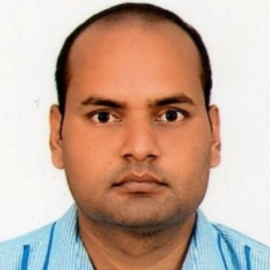
Dilip Kumar
Work place: Babasaheb Bhimrao Ambedkar University, Lucknow, India
E-mail: kumardilip0246@gmail.com
Website:
Research Interests: Computer Networks, Internet of Things
Biography
Dilip Kumar, He has completed his master’s degree in network and Internet Engineering from Pondicherry University, Puducherry, India. Currently, he is pursuing a Ph.D. in Computer Science from Babasaheb Bhimrao Ambedkar University, Lucknow, India. His areas of interest are Computer Networks, Internet of Things, Data Security and Cryptography.
Author Articles
Hybrid Cryptographic Approach for Data Security Using Elliptic Curve Cryptography for IoT
DOI: https://doi.org/10.5815/ijcnis.2024.02.04, Pub. Date: 8 Apr. 2024
The Internet of Things (IoT) technology has changed the contemporary digital world. Devices connected to the IoT have sensors embedded within them. All these devices are purposely connected to share data among them through the Internet. Data sharing among IoT devices needs some security protocols to maintain the privacy and confidentiality of information. IoT devices have less computing power to perform various operations of a cryptographic process. So, there is a need of cryptographic approach to reduce the computational complexity for resource-constrained devices and provide data security. However, storing data over the cloud server also reduces storage overhead, but data transmission via the cloud is not always secure. Data integrity and authentication can be compromised because the end user can only access the data with the help of a cloud server. To ensure the security and integrity of the data, various cryptographic techniques are used. Therefore, in this paper, we propose a secure and optimized hybrid cryptographic scheme for the secure sharing of data by combining Advanced Encryption Standard (AES) and Elliptic Curve Cryptography (ECC). To ensure authentication and data integrity, the proposed scheme primarily uses the Message Authentication Code (MAC). The encrypted messages are stored on a cloud server to reduce storage overhead. The experimental findings demonstrate that the proposed scheme is effective and produces superior results as compared to existing approaches.
[...] Read more.Other Articles
Subscribe to receive issue release notifications and newsletters from MECS Press journals